How To Get Rid Of Bees And Wasps Around Garden
Aside from different nesting preferences, the main difference between bees and wasps is that bees feed their larvae pollen, while wasps — a category that includes yellow jackets and hornets — nourish theirs with insects. That means that wasps are actually great to have around the garden because they control nearly all types of pests.
According to National Geographic, some farmers even use them to protect crops. And contrary to popular belief, wasps do pollinate plants, just not to the same extent that bees do.
Despite all the ways wasps can benefit your yard, wasps can still sting and cause an allergic reaction. Before they build a nest that's a little too close for comfort — under your porch roof or even inside your home — it's time to do something. Give one of these six methods a go:
Clove-Geranium-Lemongrass Oil Blend
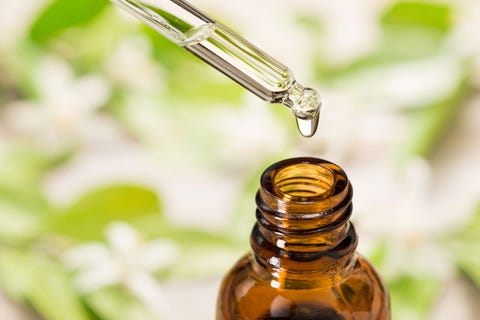
Amy_Lv Getty Images
Research published in the Journal of Pest Management Science found that a combination of clove, geranium, and lemongrass essential oils successfully repelled wasps. You can try applying these oils by mixing several drops of each with water and dish soap in a spray bottle and coating areas on the outside of your home where wasps like to build nests: under eaves, porch roofs, and other ledges and crevices.
Since fully covering all of those areas with essential oils would be impractical, target spots where you've found old nests in the past, as paper wasps will build new nests in the same locations, according to Clemson University Cooperative Extension Service.
Plain Soap and Water
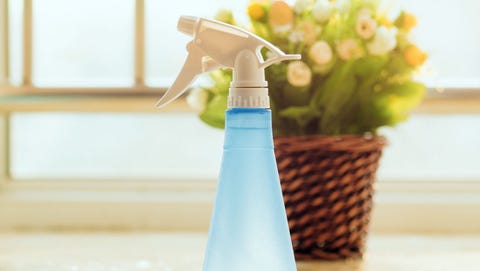
L.F/shutterstock
According to Chris Walker, an eco-friendly wasp removal expert in Southeastern Pennsylvania, you can tackle small hanging nests with a mixture of about two tablespoons of dish soap in a spray bottle filled with water.
"The soap clogs their breathing pores (called spiracles) and they die almost instantly," Walker says.
Peppermint Oil
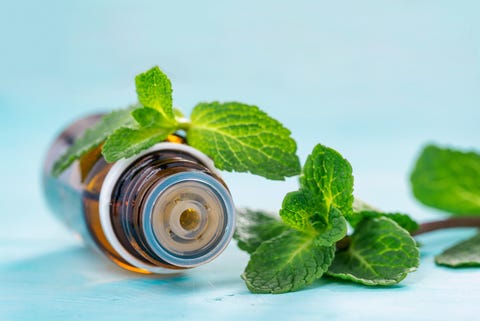
Fascinadora Getty Images
Peppermint oil may also be effective at repelling wasps, according to the same study from the Journal of Pest Management Science . You can try applying it as described above, or you can purchase EcoSmart Organic Wasp and Hornet Killer, which is mint oil-based, to target established nests.
Wasp Traps
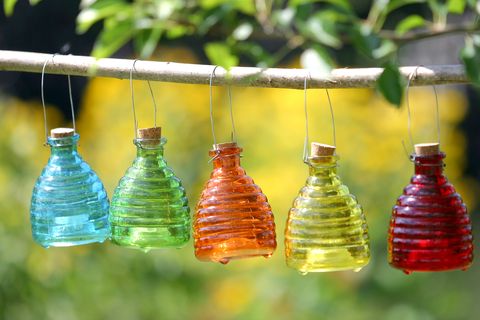
AtWaG Getty Images
Wasp traps work by luring the insects inside a container with some tempting treat, like sugar water, and then preventing them from escaping. You can make one yourself in about five minutes by sawing the top off a two-liter bottle and inverting it inside the bottom, or cutting a small hole in the top like this.
If the DIY route isn't for you, you can also purchase a more heavy-duty trap online such as this highly rated one sold on Amazon. There are even pretty glass wasp traps that look more like patio décor. However, Walker notes that traps probably won't fully solve your problem because you might end up capturing wasps passing through your yard, rather than just ones building a problem nest. If using a trap, your best bet is to try to locate the nest and place the trap close to its entrance.
Patch Up Cracks
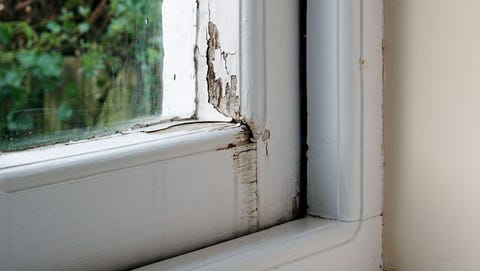
kay roxby/shutterstock
If you want to keep wasps from invading your house, preventative measures are key, notes Walker. He recommends sealing up tiny cracks — like those around the edges of siding and where power lines enter the house —and patching up holes in window screens. The best time to do this is in late fall after most worker wasps have died off, or in early spring before nests become active.
However, if you do discover wasps inside your house, don't try to seal the nest inside the wall, thinking they'll just die off. "They'll find their way out through vents or even chew through drywall," says Walker.
Seal Waste Bins
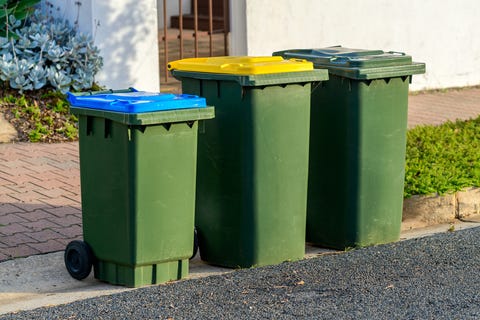
moisseyev Getty Images
According to the University of New Hampshire Cooperative Extension, wasp problems are usually worse in yards that have lots of food sources in the form of exposed garbage, recycling bins, and composting food matter. Make sure to tightly seal the lids to your garbage bins, and maybe even consider composting indoors if you find your compost pile is causing problems.
This content is created and maintained by a third party, and imported onto this page to help users provide their email addresses. You may be able to find more information about this and similar content at piano.io
How To Get Rid Of Bees And Wasps Around Garden
Source: https://www.goodhousekeeping.com/home/a20706019/how-to-keep-wasps-away/
Posted by: gonzalesthishe.blogspot.com

0 Response to "How To Get Rid Of Bees And Wasps Around Garden"
Post a Comment